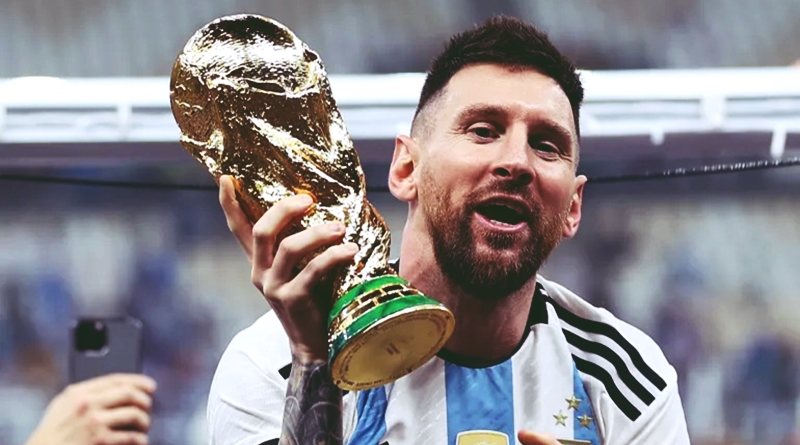Lionel Messi Thanks God For Success In Epic World Cup Win
Soccer superstar Lionel Messi went out of his way to avoid a gaggle of French defenders throughout the World Cup final on Sunday, slicing past them in an effort to score goals.
But he didn’t avoid praising God for his personal career successes after leading Argentina to a win against the defending champions via a penalty-kick shootout in the World Cup final that will be remembered as the best in the tournament’s 92-year history.
“It’s just crazy that it became a reality this way,” Messi said after the game. “I craved this for so long. I knew God would bring this gift to me. I had the feeling that this time was the one.”
Messi, a practicing Catholic, was answering questions from reporters after Argentina’s victory at the 89,000-seat Lusail Stadium located in the suburbs of the capital Doha. It was a game of ups and downs. Argentina twice squandered a lead (2-0 at halftime and 3-2 in extra time) but triumphed in the end on penalties after the game ended 3-3.
In leading Argentina to a third World Cup — after the ones won in 1978 and 1986 — Messi also replaced countryman Diego Maradona and Brazilian legend Pele as the greatest player to have ever kicked a soccer ball.
Maradona, who died two years ago, is a global icon. In Argentina, he has enjoyed a status reserved for a deity. There’s even a church with members in his name.
In an interview following the win against France, Messi, who typically makes the sign of the cross and points towards the sky after scoring goals, again mentioned God as the reason for the victory.
“I just said that God was going to give it to me,” Messi told TyC Sports, an Argentine sports TV channel, referring to the World Cup trophy. “I was sure I had a feeling that this was the moment. We suffered a lot — but now it’s time to enjoy it.”
Asked whether he needed to win the World Cup to be considered better than Maradona and among the best ever, Messi replied, “The truth is that I thank God for giving me everything. He’s given me everything. To close out my career with this — even after the last few years — is impressive.”
A native of Argentina, Messi moved to Spain to join Barcelona’s youth academy, known as La Masia, as a child. In 2004, Messi made his debut with Barcelona, where he went on to become the best player of his generation. He signed with French club Paris Saint-Germain two years ago, after Barcelona was forced to sell him off after experiencing money troubles.
Scoring goals aren’t the only thing that have propelled Messi throughout his career. Faith has played a role in his personal life. That’s not to say Messi and his Catholic faith have not made news before.
Messi ran afoul of church officials in 2017 pertaining to his wedding. An Argentine diocesan official was forced to clarify that the local archbishop had not denied a sacramental Catholic wedding to Messi and his then-girlfriend Antonella Roccuzzo. Instead, the archbishop forbid that a Catholic wedding for the couple be celebrated in a casino chapel. In the end, Messi and Roccuzzo never had a Catholic wedding (the local church in the Argentine city Rosario proved too small) and they opted for just a civil service.
That same year, Messi told TyC Sports that if Argentina captured the 2018 World Cup, he would celebrate by running 30 miles from his boyhood home in Rosario to the Sanctuary of Our Lady of the Rosary of San Nicolas.
The run never happened after Argentina failed to win the World Cup that summer. There’s no word whether Messi will make good on that promise following his exploits in Qatar.
Messi was the focus of news coverage in 2019 when Pope Francis, a soccer fan and fellow Argentine, was asked about the player’s abilities. The pope, in an interview with Spanish news program Salvados, praised Messi as an athlete — but criticized those who hail him as a God.
Certainly, the pope was excited to see his homeland lift the trophy on Sunday? He was, but the Vatican had said prior to the match that the pontiff would not be watching the game, which generates over 1 billion TV viewers across the globe.
The 86-year-old pope has not watched TV since July 15, 1990, just days after Argentina’s defeat by West Germany in the World Cup final that summer.
Source: religionunplugged.com

